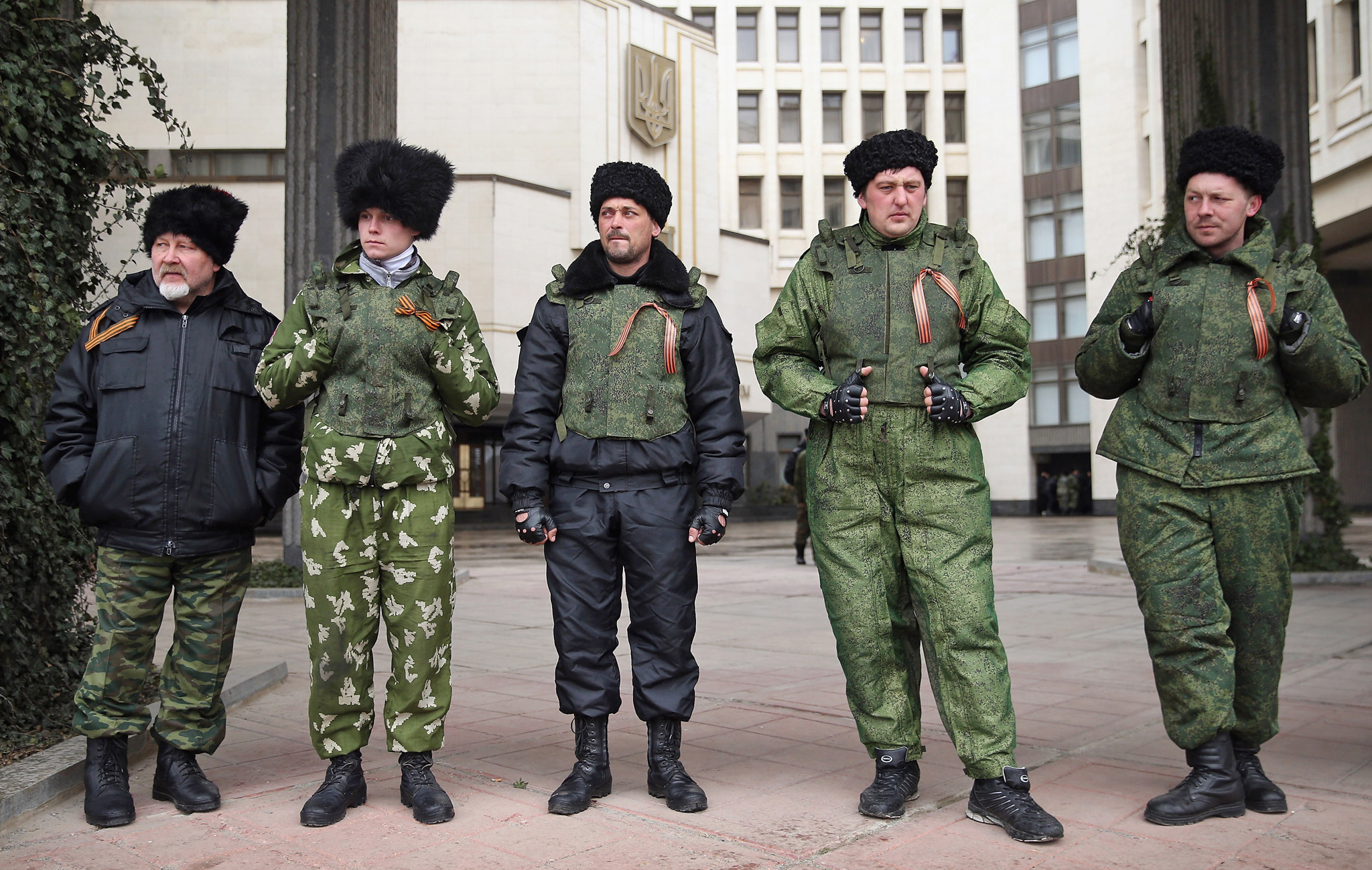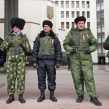
Cossacks Distribute Aid in Rostov Oblast
Publication: Eurasia Daily Monitor Volume: 11 Issue: 129
By:

As thousands of refugees from Ukraine’s far-eastern Donbas region continue to pour into Russia’s Rostov Oblast (see EDM, June 30), the need for humanitarian aid is intense. One social group in the Russian Federation, the Cossacks, has become particularly active in delivering aid to the displaced and those still living in eastern Ukraine amid the fighting.
The Cossacks are divided by lines of nationality into Ukrainian and Russian hosts, although in the early 1990s there was some discussion of setting up a Cossack Republic within the Russian Federation. Since the beginning of the crisis in Ukraine, such discussions have resurfaced (see Jamestown Foundation Blog, March 24).
In recent times, the Cossacks have sided with the Kremlin, delivering humanitarian aid for the residents of the besieged cities in Ukraine and establishing a safe corridor across the Ukraine-Russia border for refugees to leave. According to reports, the corridor in Ukraine is manned mainly by the Don Cossack Host from the Luhansk, Donetsk, Kharkiv and Miuss-Don regions. In particular, the Cossacks have set up roadblocks at four points along the routes. Meanwhile, groups like “Mercy on the Don” have been established and others have organized via social networking sites like VKontakte to coordinate the collection of food and relief supplies (Newsru.com, June 9).
The Cossacks have also apparently been involved in fighting in Donbas. On June 22, a firefight broke out at one of the customs posts in the Luhansk region between “neo-Banderites [i.e. Ukrainian government forces]” and the “Cossack national militia guard,” according to the ataman (Cossack chieftain) of the international associations of the Don Cossack Host, Nikolai Ivanovich Kozicin. Kozicin went on to say “our challenge is not to let the young people’s republic in Lugansk [Luhansk] become surrounded in a ring by the national guard of Ukraine, as well as to keep a corridor open to Russian territory for civilian refugees seeking to escape the Kiev [Kyiv] fighters” (Zavtra, June 26). Cossack assistance to the renegade regions is quite likely to escalate given the militaristic traditions of the Cossacks who pride themselves on their historical identity as armed protectors of Russia and Russian interests.
It is not just the Don Cossacks who have become involved in the military and humanitarian relief efforts in Ukraine’s southeast, however. Cossack hosts from throughout the Russian Federation have also been joining in such efforts. The Terek Cossacks from Stavropol have delivered aid, including medicine, hygiene, and food products. The ataman of the Stavropol Cossacks, Alexander Falko, said that “the volume of our humanitarian aid to the South-East will increase” (Kommersant, June 27). This is not the first such humanitarian caravan organized by the Terek Cossacks to assist the distressed in eastern Ukraine, and in fact it is the second to come in June alone (Regnum, June 27). Their brethren in Krasnodar Krai, the Kuban Cossack Host, likewise have been collecting aid for the inhabitants of Slovyansk, Luhansk, and Kramatorsk. According to one online post, they have amassed 20 tons of humanitarian aid in the past two weeks alone (Argumenty I Fakty—Kuban, July 1). Such a massive—and dangerous—humanitarian aid effort organized from among the grassroots is testimony to the strength of feeling that transcends national boundaries.
While much has been made of the presumed Russian-funded agents and security personnel who have organized protests in Ukrainian cities like Simferopol and Luhansk, the Cossacks have also played a similar role. In Crimea they were one of the main agitating groups helping to break what they referred to as the Kyiv government’s “information blockade” imposed on the peninsula (RT, March 3), and they supported the results of the March 2014 referendum for Crimea to join Russia (see EDM, March 24). Moreover, during the height of the protests on Kyiv’s Maidan, the Union of Cossacks of Crimea declared that they were prepared to defend Crimea from the “Banderites” and actively worked with Russian Cossack organizations to train youth and ordinary Cossack members in martial arts. This Union of Cossacks of Crimea consists of a number of Cossack and pro-Russian organizations from throughout the peninsula and declares itself opposed to “threats on the part of NATO [the North Atlantic Treaty Organization], Islamic radicals and Ukrainian nationalists” (Kazaki Krim, July 1).
The Cossacks have been one of the main ideological allies for President Putin’s embrace of conservative values and great-power identity of the Russian Federation. They are also a potent symbol of Russian nationalism for the regime, and Cossacks now patrol the streets of Moscow (RT, November 27, 2012). Cossacks have come to epitomize the xenophobic and militant dimensions of Putin’s regime, and the governor of Krasnodar Krai, Alexander Tkachyov, has championed their cause (Anton Popov and Igor Kuznetsov, “Ethnic Discrimination and the Discourse of ‘Indigenization’: The Regional Regime, ‘Indigenous Majority’ and Ethnic Minorities in Krasnodar Krai in Russia, Nationalities Papers, 36:2, May 2008, pp. 223–252). At the same time, the difficulties of proving oneself an ‘ethnic’ Cossack and the generally ersatz image of the Cossacks in Russian intellectual life has rendered the Cossack Host organizations romantic clubs with a wide membership base rather than ethnic groups as they might be understood in the West. Consequently, the ongoing involvement of Cossack organizations in events in southeastern Ukraine and Crimea suggest that any Western policy toward the region will have to take these groups into account.




